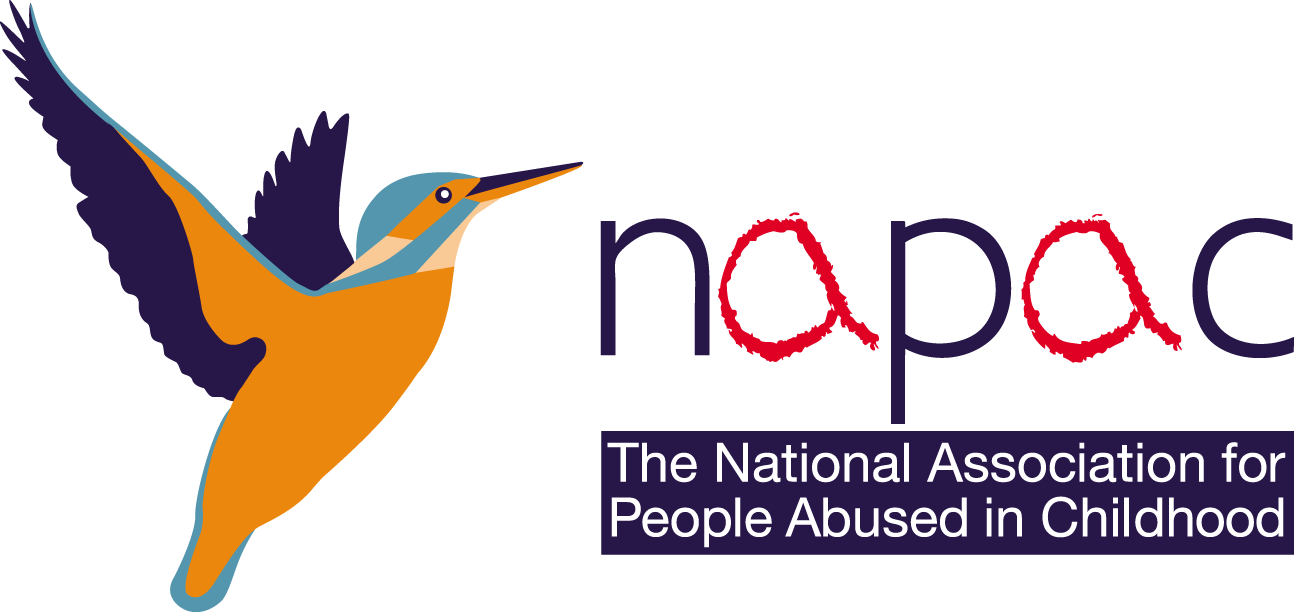NAPAC is calling on UK survivors of online child sexual abuse to share their voices, as part of international research to highlight the devastating impacts of online child sexual abuse offending. NAPAC and the Canadian Centre for Child Protection (Canadian Centre) have started to gather research about the impacts of online child sexual abuse (CSA) on the survivors depicted in abuse images that are distributed online.
Monday 5 February 2018 marks the start of the UK’s Sexual Abuse and Sexual Violence Awareness Week and NAPAC is inviting UK adult survivors of online child sexual abuse to share their experiences of the impacts online offending has had on them, by participating in the Canadian Centre’s survivor survey. The survivor survey results will be used to support international action to tackle online CSA.
20,000 British men are interested in sexually abusing children, according to a recent estimate by UK police leaders 1.. Online child sex offenders are often referred to as ‘lower-level offenders’ and sentences for online offending are often lenient and the impacts on victims are rarely talked about.
Research from the Canadian Centre shows how devastating it is for survivors knowing that images of their childhood abuse may be being viewed and distributed internationally online. Most of the survivors were very young when the abuse started, for many the abuse went on for more than 10 years. The primary perpetrator was usually a family member. The scale is massive – in the United States, the National Center for Missing and Exploited Children CyberTipline is averaging approximately one million reports of child sexual exploitation each month.
The following are quotes from survivors who participated in the Canadian Centre survey.
“I have blocked so many of those memories out to survive and even just the possibility of anyone being able to relive those moments and enjoy them denies me any form of closure, any kind of peace. When every terrible moment you endured as a child was recorded or documented in some way, it feels like your abuser behind bars loosens their grip, but they’ll always have a hold on you.”
“He threatened to tell my family everything. He threatened to wreck my life. I’d no longer have any ground under my feet to exist. I’d be better off committing suicide myself before he got hold of me because that would be gruesome. I was to never tell about it ever.”
– Survivor, in response to the question “Please describe any threats or consequences for not complying with the abuse/expectations.”
“I remember being humiliated when my abuser showed another child (whom I liked) photos of my torture (with ropes). I wanted to hide these images because of the shame, so disclosure would have been nearly impossible. Disclosure would implicate me in what I believed was a crime for which I was at least partially responsible.”
– Survivor in response to the question “Please describe how the existence of images of your abuse impacted your decision to tell someone (if at all).”
NAPAC’s CEO Gabrielle Shaw said: “Sentences for online offending are simply too lenient. The impacts of online offending on the people who were abused as children are horrific and sentencing must reflect this. It is devastating for a survivor to know that images of their childhood abuse may be being viewed and distributed online. We hope some UK survivors may share their voices in this survey, so that there is concerted action to prevent these crimes.”
Key findings to date from the survivor survey (150 survivors from around the world)
• All participants (100%) had their child sexual abuse recorded (images, videos) and 61% believed the recordings had been distributed online while 38% were unsure whether it was shared online
• 56% of the survivors indicated that the abuse began before the age of four, and 87% were 11 years of age or younger
• 42% were abused for more than 10 years
• Almost 70% of the survivors worried about being recognised by someone because of the recording of their child sexual abuse
• 58% of respondents reported having had more than one person abusing them
• 82% of the primary offenders were parents or extended family members of the child, where there were multiple offenders
• 67% of the survivors were threatened with physical harm including being told they would die or be killed
“These survey results shed a critical light on the new realities faced by victims of child sexual abuse,” said Lianna McDonald, Executive Director of the Canadian Centre. “In today’s world, there is a great likelihood that a child who is being sexually abused is also being recorded. This additional layer of trauma is unimaginable and can colour every aspect of their life.”
Survivor survey
UK adult survivors of child sexual abuse who were photographed or filmed can participate in this survey
Find out more or take part in the survey
The Canadian Centre’s international Survivors’ Survey report, including recommendations, is available here. Survey results from Sept 2017
Sexual Abuse and Sexual Violence Awareness Week runs from 5-11 February 2018, an umbrella campaign supported by numerous NGOs including NAPAC. #ItsNotOK
Reference: 20,000 British men are interested in sexually abusing children, according to a recent estimate by UK police leaders. Guardian 29 Dec 2017
